From July 1, many important regulations on tax management and value added tax (VAT), tax codes, personal income tax will take effect according to the Law on Value Added Tax, the amended and supplemented Law on Tax Management, Decree 117, Circular 86...
Online platform declares and pays taxes on behalf of sellers
According to Decree 117 issued by the Government , from July 1, e-commerce platforms and digital platforms must deduct and pay VAT and personal income tax for sellers (households and individuals doing business) on the platform. Sellers will include individuals residing in the country and abroad.
The above taxes will be deducted immediately when the order is successfully confirmed and the buyer accepts the payment. The tax amount is determined as a percentage of the revenue of each completed transaction. For example, VAT on goods is 1%, services 5%, transportation, services associated with goods is 3%.
The personal income tax rate for individuals residing in the country is 0.5% for goods, 2% for services, 1.5% for transportation and services associated with goods. Individuals living abroad are subject to personal income tax when selling goods online at 1%, 5% for services, 2% for transportation and services associated with goods.
In case the online platform management unit cannot determine whether the transaction is a product or a service, the deducted tax will be at the highest rate. This tax declaration is done monthly. For canceled or returned transactions, the platforms will have to offset the deducted tax with the seller and pay it on their behalf.
Households and individuals doing business on online sales platforms must declare and pay special consumption tax, environmental protection tax, resource tax and other taxes. They are also responsible for providing complete and accurate information about tax codes or personal identification numbers and passports to the platforms.
According to the Department of Taxation ( Ministry of Finance ), in the past 5 months, organizations and individuals doing business on online platforms and digital platforms have paid 74,400 billion VND in taxes, an increase of 55% over the same period last year. The tax authority has reviewed 164,661 taxpayers, thereby collecting 747 billion VND. Of which, the amount collected from businesses is more than 416 billion VND; from individuals and business households is over 331 billion VND.
Tax authorities will tighten management in the field of e-commerce (Photo: Tien Tuan).
Personal identification number to tax code
According to Circular 86 of the Ministry of Finance, from July 1, Vietnamese citizens will use personal identification numbers instead of tax codes. At the same time, the personal identification numbers of representatives of households, business households, and business individuals will also be used instead of the tax codes of those households and business individuals.
When declaring, taxpayers will write their personal identification number in the "Tax code" column on documents and papers such as tax declarations, payment slips, invoices, personal income tax deduction records and other documents requiring tax code declaration.
The personal identification number of Vietnamese citizens is a 12-digit number issued by the Ministry of Public Security . For those with a 12-digit citizen identification card, the ID number is the personal identification number. People can look up their identification number on the VNeID application or at dichvucong.dancuquocgia.gov.vn.
For children, the identification number will be displayed on the birth certificate. In particular, when accessing the VNeID application, people select the "Residence information" section, which will display the identification numbers of members in the same household.
Authority to clear tax debt from 15 billion VND or more
Currently, according to regulations for tax debts of 15 billion VND or more, the Prime Minister is the person with the authority to erase tax debts, late payment fees, and fines for enterprises and cooperatives as prescribed in Clause 3, Article 85 of the 2019 Law on Tax Administration.
However, based on Clause 1, Article 5 of Decree 122 issued on June 11, from July 1, the Minister of Finance will exercise the authority to decide to cancel tax debts, late payment fees, and fines of VND 15 billion or more for enterprises and cooperatives as prescribed in Clause 3, Article 85 of the Law on Tax Administration 2019.
Changes in input VAT deduction conditions
The Law on Value Added Tax 2024, effective from July 1, has one of the notable changes: the regulation requiring non-cash payment documents for all transactions of purchasing goods and services with a value of less than VND 20 million to be eligible for input VAT deduction.
From July 1, many important regulations in the tax sector will take effect, directly affecting businesses and people (Photo: Tax Department).
Previously, only transactions over VND20 million were required to meet this regulation. The goal was to close loopholes in legalizing fake invoices for small transactions.
In addition, businesses that only produce goods and provide services subject to a 5% tax rate will be refunded if they have 300 million VND or more in input VAT that has not been fully deducted after 12 months or 4 consecutive quarters.
2% VAT reduction until the end of 2026
According to the National Assembly Resolution, from July 1, the VAT rate will be reduced to 8%, applied to groups of goods and services currently subject to a tax rate of 10%, such as gasoline, information technology services, chemical products - prefabricated metals, coke, coal (imported, wholesale in the commercial business stage).
VAT reduction does not apply to some groups of goods and services such as telecommunications, financial activities, banking, securities, insurance, real estate business, metal products, mining products (except coal), goods and services subject to special consumption tax (except gasoline).
According to the plan submitted by the Government, the expected reduction in state budget revenue in the last 6 months of the year and the whole year of 2026 is about 122,000 billion VND. In case of implementing tax reduction according to the plan to reduce all items subject to VAT rate of 10%, the expected reduction in budget revenue is equivalent to 167,000 billion VND.
VAT rates of some goods and services will be adjusted from July 1 (Photo: Thanh Dong).
Adjusting VAT rates of some goods and services
From July 1, the new law also reviews and adjusts the list of non-taxable objects, amends regulations on taxable prices for imported goods, and changes the tax rates of many groups of goods.
This includes abolishing some groups of subjects currently not subject to VAT such as: fertilizers; machinery and equipment serving agricultural production; offshore fishing vessels; securities depository; market organization services of stock exchanges and securities trading centers; other securities business activities.
Exported products from natural resources and processed minerals are only exempt from tax if they are on the list prescribed by the Government. In addition, the Law provides tax exemption for imported goods used to finance and support the prevention and control of natural disasters, epidemics, and wars.
0% VAT rate is applied to international transportation; construction and installation works abroad, in duty-free zones; goods in quarantine zones, duty-free shops; aviation and maritime services serving international transportation.
The 5% tax rate is applied to previously non-taxable items such as fertilizers and fishing vessels.
Items previously subject to a 5% tax rate, including unprocessed forest products; sugar and sugar production by-products; specialized equipment and tools for teaching, research, and experimentation; and cultural, artistic, sports, and cinema activities, are subject to a 10% tax rate.
The VAT tax rate is 0 for goods and services used for promotion in accordance with the provisions of commercial law. This new point aims to synchronize tax policy with regulations on trade promotion.
Source: https://dantri.com.vn/kinh-doanh/so-dinh-danh-thay-ma-so-thue-san-online-nop-thue-thay-nguoi-ban-tu-17-20250629234703165.htm













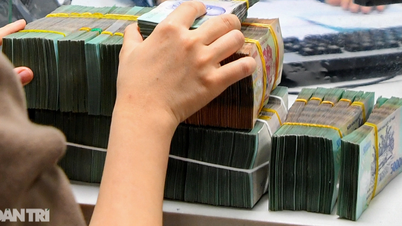




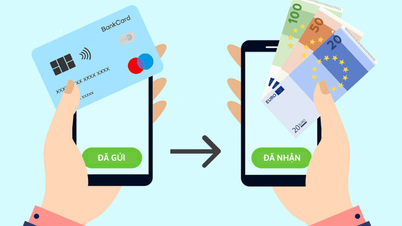


















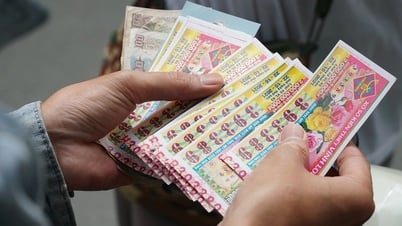
























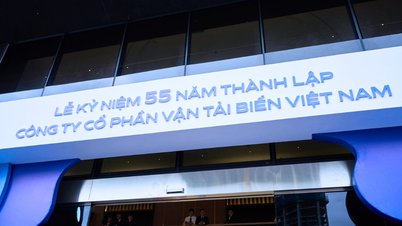










![[Photo] General Secretary To Lam attends the launch of 3 digital platforms serving the implementation of Resolution No. 57-NQ/TW](https://vphoto.vietnam.vn/thumb/402x226/vietnam/resource/IMAGE/2025/7/2/d7fb7a42b2c74ffbb1da1124c24d41d3)


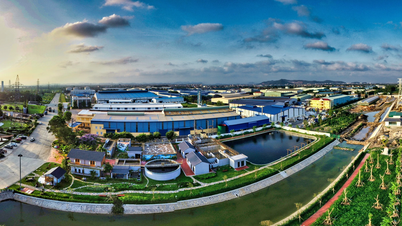


















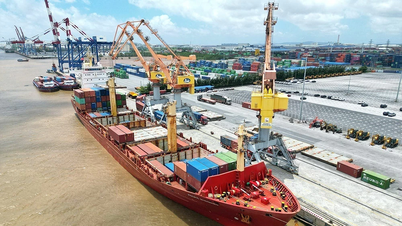















Comment (0)